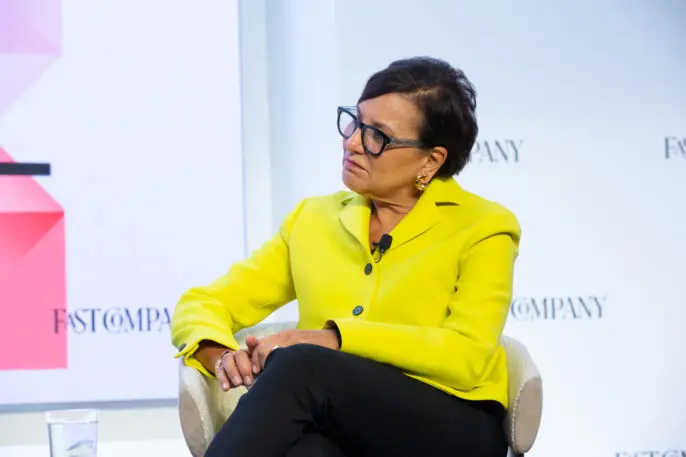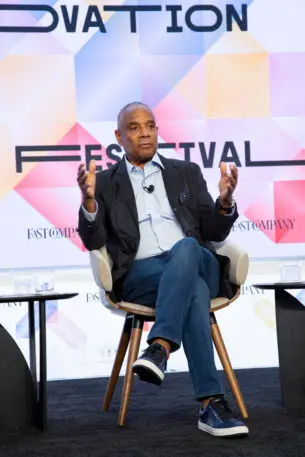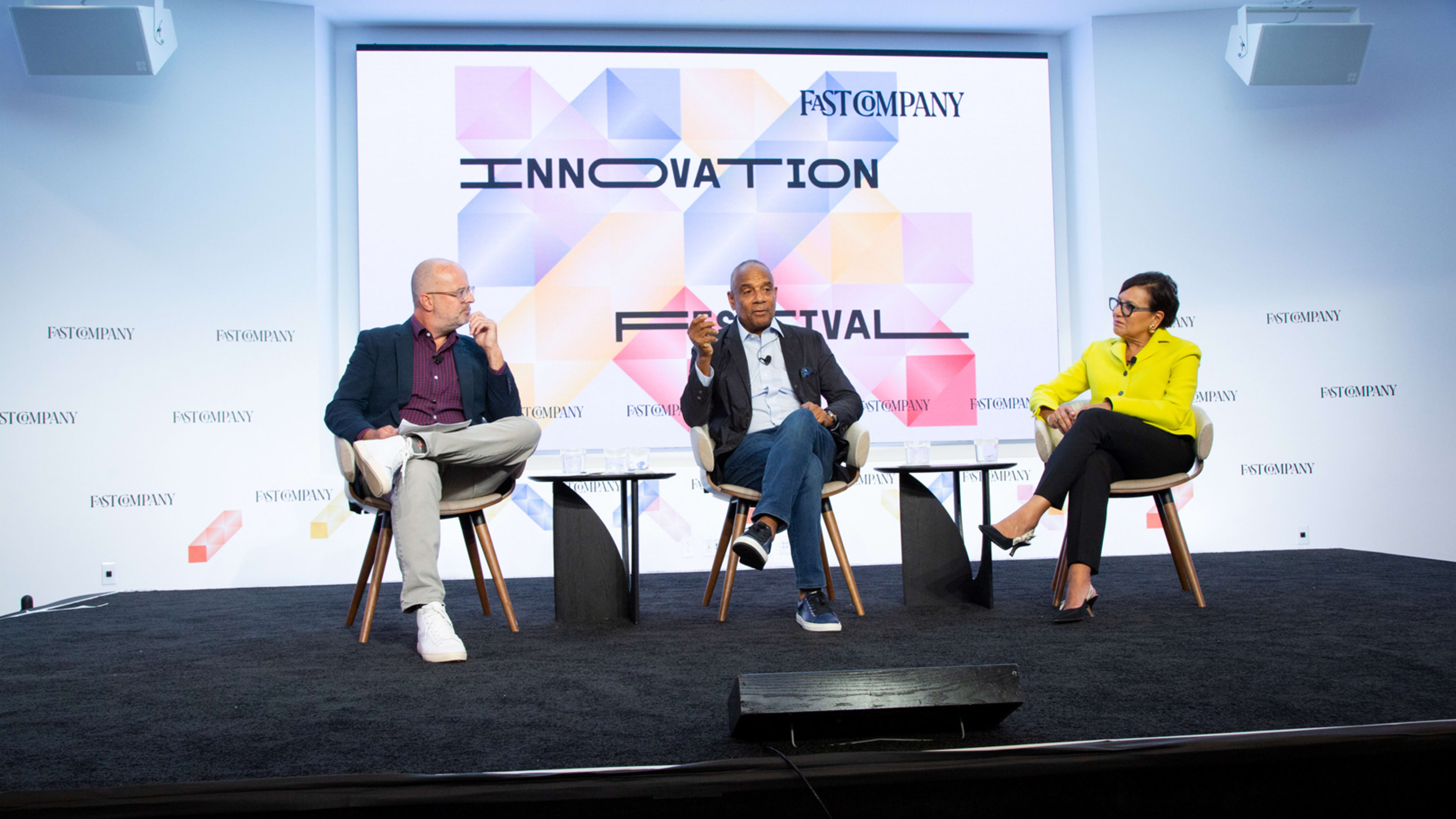“We are nowhere close to the 2008 financial crisis.”
“The pandemic was a tale of two cities.”
“Washington got it right.”
These were among the insights that ping-ponged across the room when two of the brightest minds in business—former American Express CEO and current chairman and managing director of General Catalyst Ken Chenault, and President Obama’s Secretary of Commerce Penny Pritzker—converged at the Fast Company Innovation Festival in New York on Wednesday.
To the first point, Pritzker was serving as an advisor to then-president-elect Barack Obama in the early days of the Great Recession, when Bear Stearns began to liquidate and Dow Jones charts bled red. She remembers that time well. “I was on a call with Obama [when we realized], oh my God, he could be presiding over the implosion of the American financial system,” she recalls.
It terrified economists. But according to Chenault, whose tenure as AmEx’s top executive lasted from 2001 to 2018, today’s stock market downturn pales in comparison. Rather, he chalks up our current problem to times being too good immediately pre-pandemic. “The system was flush with capital and low interest rates, and people who frankly didn’t have very good business models said, ‘I think I’m brilliant,'” Chenault says. “[In that environment], it’s not that hard to have a business . . . but now a class of companies have been over-gorging capital, and I think they’re gonna hit the wall.”
What else is bad? “Our supply chains are completely messed up,” says Pritzker, noting that in Asia (where she was last week), semiconductor manufacturers are sold out through 2023. Also, the war in Ukraine “might as well be right in our backyard” because of the dramatic effect on food and fuel costs, and Putin’s vow on Wednesday to recruit 300,000 more soldiers creates even more uncertainty for future world markets. Not to mention inflation, which has soared so high that the Federal Reserve is aiming to pull over a trillion dollars out of the economy within the coming 12 months—a move whose extremity has not been seen in 40 years.

The road to innovation begins at the White House
While the path to a better economy is still murky, Pritzker and Chenault agree on the sunny upside: Now is a wonderful time to start a company.
“The American Express card came out in 1958 in the midst of a deep recession,” Chenault says. “You have to innovate, and it’s a good time because a lot of people will be frozen and afraid to act. The question is, how compelling are your ideas?”
Pritzker cites a summer rush of legislation from the Biden Administration as a potential catalyst for innovation, including the CHIPS and Science Act, which is meant to spur the U.S. to counter China in research and development—and bring semiconductor manufacturing closer to home—with $250 billion in investment over the coming decade. There’s also the largest infrastructure bill since Dwight Eisenhower’s presidency, which includes $65 billion to deploy on better broadband networks—which Pritzker says are sorely lacking not just in rural America, but also in urban schools and libraries in cities like Chicago. The landmark climate bill, the Inflation Reduction Act, also offers $370 billion in federal dollars for green energy development, which Pritzker claims will help early companies cross the so-called “valley of death,” where startups that can’t get private funding fail to make it to commercialization.
“This is huge for American competitiveness,” she says. “It’s so exciting.”

The pandemic diagnosis
Even if the pandemic results in an innovation boom, it also exposed our greatest shortcomings. “It shined a very bright light on the haves and the have-nots,” says Chenault. “People who were affluent were talking about how absolutely fantastic it was to spend time at home, but if you think about a low-income person or a single mother with children, it really just ripped them apart.”
“The other thing we learned,” Pritzker adds, “is we have a critical shortage of talent in this country. There is certain expertise we do not have enough of. And [job] turnover’s high, which tells us people aren’t happy.”
Pritzker predicts these weaknesses will force several trends: for one, the rise of robotics in factories and warehouses where there aren’t enough workers, as well as advances in cybersecurity and cloud migration to meet new hybrid work models.
But also, “I think we’re gonna see an absolute revolution in terms of artificial intelligence over the next five years,” she says, which will come as wage inflation grows along with demand for greater efficiency.
“We’re going to have to learn as humans to work with AI,” Pritzker prophesies. “What is our responsibility as the human? And what is the responsibility of the machine?”
Recognize your brand’s excellence by applying to this year’s Brands That Matter Awards before the early-rate deadline, May 3.
